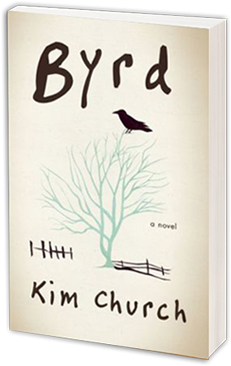“Byrd’s engaging characters make for lively book club discussion. The book connects with people—their longings, their mourning for lost connections, their acceptance of certain realities in life. Perhaps the simplicities of everyday life hold more mystery and awe than we know.” –Marty L., Cameron Park Book Club, Raleigh
“Devour this book. … Choose it for your book club; it’s an original paperback so all can buy it or download it. If your book club reads debut novels—and it should—this would be a good choice with much to discuss.” —Trina Hayes, Hungry for Good Books
“Byrd is intimate and honest, funny and heartbreaking. Church has gotten all the details right, from the complications of motherhood and intimacy, to the culture of Piedmont North Carolina from the 60s to the present.” —Quail Ridge Books & Music (Staff Pick; recommended at Spring 2014 Book Club Bash)
Byrd is a Wake County Public Libraries Book Club Kit selection, and one of the Charlotte Observer‘s top-twelve Southern recommendations for book clubs.
Discussion questions
1. Why do you think Addie chooses not to keep her son? Do you think she makes the right choice? Why or why not?
2. What do Roland and Addie represent to each other?
3. What is Elle’s role in this story? Dusty’s?
4. What does William Glass represent to Addie? How does he change her story?
5. One recurring theme is how little people actually know about one another. What critical pieces of information are these characters missing about each other? What critical information are they missing about themselves?
6. In what ways do secrets shape the story?
7. What does motherhood mean to the characters? What does fatherhood mean?
8. Most of the novel’s settings are real places—except for Carswell, North Carolina. Why do you think the author chose to fictionalize Addie’s hometown?
9. The story is written largely in present tense. What effect does that have?
10. What do books signify for Addie? How does this change over time?
11. What is the role of art—in its broadest sense—in the lives of the characters?
12. Like a song or poem, the novel contains repetitions of certain phrases, images, and events. What repetitions do you notice, and what is their effect?
13. One point of view notably missing from the book is Byrd’s. What is the effect of that omission?
14. Flash forward: where do you envision each of these characters five years after the final scene?

